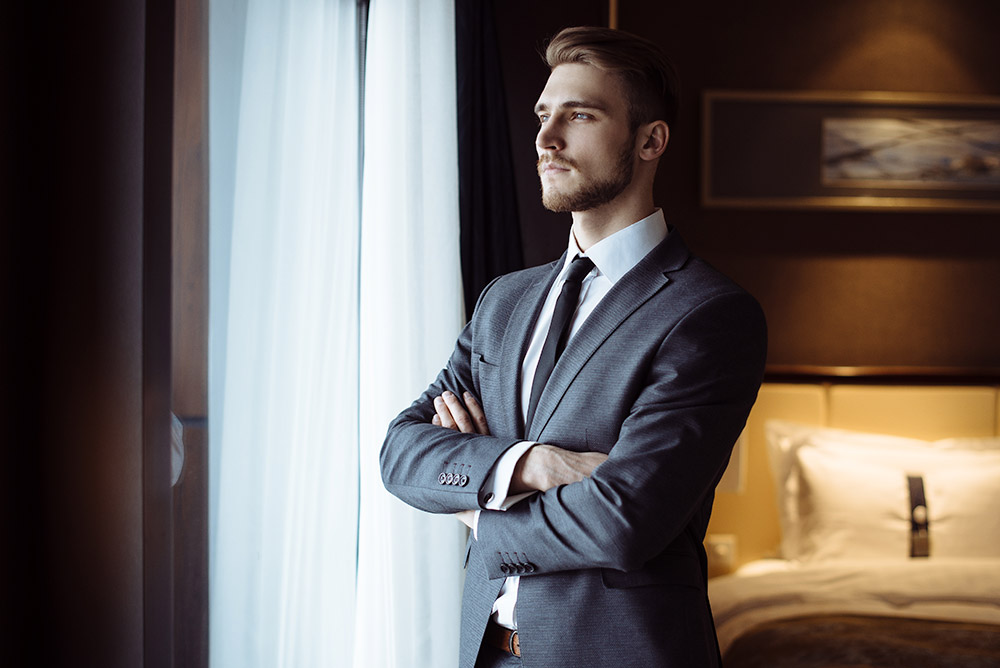Understanding Travel Addiction in Professionals
In today’s high-performance culture, travel is often associated with prestige, productivity, and personal freedom. For professionals in leadership roles, frequent travel may be part of the job or a reward for success. However, when travel becomes compulsive, emotionally avoidant, or disruptive to one’s mental health and personal relationships, it may signal something more profound.
At Blair Wellness Group, we recognize that not all addictions involve substances; behavioral addictions, such as travel addiction, can be equally disruptive and emotionally consuming, particularly when used as a form of escape or avoidance. Travel Addiction is often overlooked because it is glamorized or rationalized, especially among successful individuals. Yet for many professionals, the compulsion to constantly be elsewhere reflects unresolved internal struggles, discomfort with emotional stillness, or a deep avoidance of vulnerability and connection.
Dr. Cassidy Blair, a Licensed Clinical Psychologist, specializes in treating high-functioning individuals who may appear outwardly successful but inwardly feel disconnected, restless, or emotionally unsettled. Through individualized Psychotherapy, clients gain insight into the emotional drivers of compulsive behaviors and build healthier, more grounded ways of navigating their lives; contact our professional practice to start refining your therapy plan.

What Is Travel Addiction?
Travel addiction, also known as compulsive travel behavior or wanderlust addiction, is a type of Behavioral Addiction characterized by a chronic, often uncontrollable urge to travel. It may begin as a harmless pursuit of new experiences, but it can evolve into a psychological dependency where one feels unwell when not planning or engaging in travel. While spontaneous getaways and global exploration can be enriching, individuals with this condition often feel a persistent need to leave, even when doing so disrupts their routines, finances, relationships, or mental health.
Common Signs and Emotional Patterns
Travel addiction does not always present as chaos or impulsivity; in high-achieving professionals, it is often masked by careful planning, business-related travel, or lifestyle branding. However, underlying symptoms may include:
- Restlessness, irritability, or depression when staying in one place
- Obsessive planning or preoccupation with the next trip
- Using travel to avoid emotional discomfort or relational conflict
- Chronic dissatisfaction, even in desirable or luxurious environments
- Difficulty forming roots or maintaining consistency in personal relationships
- Emotional detachment or fear of intimacy disguised as independence
These behaviors often reflect deeper emotional patterns tied to fear of stillness, discomfort with vulnerability, or unresolved attachment wounds. In therapy, clients frequently discover that their travel compulsion is linked to a need for control, escape, or external validation.
Other Services
-
Alcohol AddictionAlcohol Addiction
-
Drug and Substance AbuseDrug and Substance Abuse
-
Food AddictionFood Addiction
-
Pornography AddictionPornography Addiction
-
Sex AddictionSex Addiction
-
Social Media AddictionSocial Media Addiction

Office Hours
Mon - Fri :
7 am - 11 pm
Sat - Sun :
9 am - 10 pm
Why Travel Addiction Often Goes Unnoticed
Unlike other Behavioral Addictions, such as gambling or compulsive shopping, travel addiction is often praised or normalized. In professional circles, constant movement can be seen as a sign of success or ambition. Social media reinforces this by glamorizing itineraries, luxury experiences, and the appearance of freedom. This social reinforcement makes it difficult for individuals to recognize when their relationship with travel is no longer healthy; the constant pursuit of “what’s next” may feel exciting on the surface, but often masks internal discomfort or a fear of emotional presence.

How Travel Addiction Affects High-Achieving Professionals
Executives, entrepreneurs, and professionals often rationalize frequent travel as necessary for career advancement or stress relief. However, travel addiction can undermine mental health, disrupt relationships, and lead to chronic emotional fatigue. Constant relocation or escape-mode living prevents individuals from developing deeper self-awareness, practicing emotional regulation, or building meaningful connections.
In some cases, clients report that their sense of identity becomes tied to their mobility. When not in motion, they feel unmoored, anxious, or inadequate. Over time, this can lead to difficulties with grounding, trust, emotional intimacy, and even physical health. For professionals who rely heavily on performance and image, the inability to rest or be present can erode self-worth and relational stability.
How Psychotherapy Can Help
Psychotherapy provides a structured, confidential space to examine the emotional roots of compulsive travel behavior. Dr. Blair works collaboratively to understand what individuals are escaping from, what they fear about stillness, and what patterns are being reinforced through constant movement to help clients:
- Identify the emotional drivers behind travel addiction
- Explore the link between mobility and the avoidance of vulnerability
- Build tolerance for stillness and emotional presence
- Develop healthier coping mechanisms for stress and discomfort
- Reconnect with their values, relationships, and long-term goals
- Address related conditions such as Anxiety Disorders, Workaholism, or Attachment Disorders
The goal is not to eliminate travel, but to redefine its role in the client’s life—from a compulsion to a choice, from an escape to an enrichment.

Frequently Asked Questions About Travel Addiction
Is Travel Addiction a real condition?
While not formally classified as a disorder in diagnostic manuals, travel addiction is a recognized Behavioral Addiction characterized by compulsive, emotionally driven travel habits that interfere with mental health and daily functioning.
What causes Travel Addiction?
It is often rooted in emotional avoidance, unresolved trauma, or a deep discomfort with stillness and vulnerability. Clients may use travel to escape internal conflict or relational tension.
Can successful professionals struggle with Travel Addiction?
Many high-functioning individuals use frequent travel to mask emotional distress, maintain appearances, or avoid intimacy. The behavior is often reinforced by external validation and lifestyle expectations.
How is Travel Addiction treated?
Psychotherapy is highly effective in identifying the root causes of travel addiction, exploring behavioral patterns, and developing healthier emotional strategies. Treatment is tailored to the client’s lifestyle and goals.
Will I be told to stop traveling?
The goal of treatment is not restriction but insight; clients learn to make intentional choices about travel rather than acting from compulsion or avoidance.
Schedule an Appointment
If you recognize patterns of compulsive travel, emotional avoidance, or persistent restlessness in your life, it may be time to seek professional support. Blair Wellness Group offers expert treatment for travel addiction and related emotional concerns. Contact us today to begin your personalized treatment plan with Licensed Clinical Psychologist Dr. Cassidy Blair.
We offer evening and weekend appointments for our concierge patients and all patients upon request.
Areas Served
Discover effective solutions for addiction at Blair Wellness Group today. Call us at 310.999.4996 to schedule an appointment. We welcome patients from Beverly Hills, Los Angeles, Irvine, Newport Beach, and the surrounding areas.

Reliable
At Blair Wellness Group, we are here to meet your clinical needs at any time.

Dedicated Support
Our team provides the compassionate care, support, and necessary interventions needed for our clients to achieve their goals and clinical objectives.

Experience
With 15+ years of clinical experience in providing an array of psychological services, we are committed to helping our patients achieve their goals.

Professional Team Support
We are dedicated to the well-being of our clients and have the extensive training to provide them with high-quality care.
Other Services
-
Alcohol AddictionAlcohol Addiction
-
Drug and Substance AbuseDrug and Substance Abuse
-
Food AddictionFood Addiction
-
Pornography AddictionPornography Addiction
-
Sex AddictionSex Addiction
-
Social Media AddictionSocial Media Addiction

Office Hours
Mon - Fri :
7 am - 11 pm
Sat - Sun :
9 am - 10 pm
Get Started Today
Looking for a Local Psychologist?
Our Psychologists and Therapists in Los Angeles, Beverly Hills, Irvine, Newport Beach, and the surrounding areas offer evening and weekend appointments for our Concierge patients. Contact us today to discover how Blair Wellness Group can help you overcome personal or professional challenges and mental health disorders, such as depression, anxiety, relationship challenges, addiction issues, and personality disorders.
Dr. Cassidy Blair is a renowned Licensed Clinical Psychologist and trusted Performance Coach who specializes in providing Concierge-Psychological Care and Executive Coaching for high-achieving professionals. With a deep understanding of the unique challenges faced by CEOs, executives, entrepreneurs, and leaders, Dr. Blair offers tailored, confidential care designed to foster emotional well-being, personal growth, and professional excellence. Her clientele values her discretion, clinical expertise, and emotionally intelligent approach to navigating complex personal and professional dynamics.
- This author does not have any more posts.


